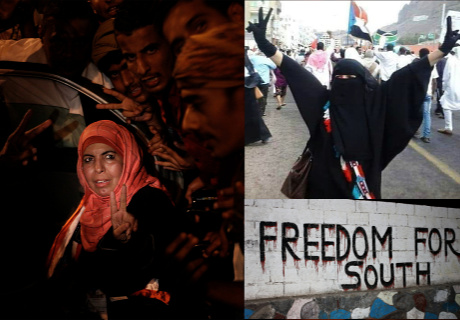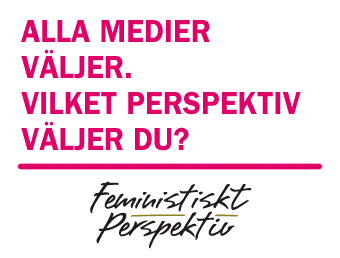Zahra Saleh, full-time activist in ”South Arabia” passed away on November 27. She was 40 years old.
First time we met, Zahra Saleh grabbed my arm. I lived in northern Yemen and had travelled to the south to report on a rebellion. With decisive steps she led me to a car. In the back seat she introduced herself and said that she had heard that I wanted to get to know her resistance movement. She left me her number with a warning: a previous reporter had gotten into trouble when caught with it. She herself faced problems. ”The police say I should be thrown into prison”, she said. ”But not the women’s prison, this time they’ll lock me up with the men.” I put her in as Zorro (the fictional character who defends the people against corrupt and tyrannical officials) in my phone book and the coming eight years we both called and met countless times.
Zahra Saleh is a well-known name in Aden, the capital of what she called her occupied land South Arabia. For over a decade she fought for the independence of the southern Yemeni provinces from the north. And a return of the demarcation before 1990, when South and North Yemen joined together in one country.
After years of discrimination against the south, Zahra Saleh along with thousands of other southern citizens took to the streets to demand equality with the North, in 2007. They formed the vast grassroots movement Hirak al-Janoubi al-Salmi (Peaceful Southern Movement), known as Hirak, within which she was seen as an unofficial leader.
Aden’s women had demanded their rights already in the 1970s. But the women’s struggle had met major setbacks. And Zahra Saleh became the first woman to march again along with the men in Aden’s streets, easy to recognize in the only niqab among men’s clothing. She wore a banner over her shoulder like beauty queens usually have. The caption: ”Independence or death”. It was literally meant, the one who wanted to silence her had to kill her.
When soldiers shot into the crowd, she didn't rush in the opposite direction. Her strategy was to hide under vehicles parked along the road. Under a car she was accompanied by a woman who asked to join the movement.
Zahra Saleh organized the southern women in a union and led thousands out from their home and back to the streets and the public sphere. But she left the assignment as the union’s chairperson after a few years to instead stand on the barricades. Her rough voice was heard in the front of the marches.
”My revolution is a South Arabian revolution!”
And the slogans once chanted against the British in the 1960s.
”Out, out occupants!”
”Resistance to the tyrants!”
She was imprisoned eleven times. To be released she was once forced to sign a paper and promise the authorities to marry. Then she would be kept prisoner at home, she explained and continued to march every single day, around large parts of the south.
She had no leisure activities, except possibly the Arab criminal series she followed on television. But she watched them to prepare for the next time she was arrested.
The only dialogue with North that Zahra Saleh could agree to was a practical one on how to get her country back. A federal transformation of Yemen with increased autonomy for the south was to her no alternative.
Behind her back, some called her Margaret Thatcher, she was Hirak’s iron woman, just as uncompromising with her politics. But unlike Thatcher, Zahra fought from the bottom up and took the consequences of her own struggle. About her nickname, she only had the following comment: ”Forget the British, we are under Yemeni occupation now.”
She urged civil disobedience and was beaten several times, not just by the security forces. Also by islamists in the south. She accused them of the grenade attack against her in 2014, when she seriously injured one leg, had to amputate the other. Her body was full of metal splits and she suffered from pains.
In the war against the Saleh-Houthi Alliance in 2015, Zahra Saleh continued her peaceful struggle and also documented the abuses on the south, although it was difficult to get around the ruins in a wheelchair.
Mother of the South. Heart of the movement. Flame of the revolution, she was honourably called.
In a future South Arabia, many wanted to see her as a minister. Some even hoped that she would become the Arabian Peninsula's first female president.
Bah, Zahra Saleh replied when I told her. She promised her comrades to always stay in opposition, along with new trouble-makers. Nevertheless, at the end of 2017 she was elected to the National Association, which has 303 individual members and acts as a provisional parliament in the south. She worked to develop a constitution for South Arabia.
Zahra Saleh was recently diagnosed with leukaemia. In Aden, there was not the care she needed. Thanks to help from the movement, she could fly to Egypt. There she died in the hospital. She was returned to Aden and received by friends who brought the body to her home for a final farewell.
She was buried on November 30 in a burial ground for the martyrs of the movement, as she herself desired. And is mourned by her father, sisters and brother. Like thousands of South Arabians who swear to pursue her liberation struggle.
Footnote: That the south is often ignored in the already scanty reporting on Yemen and that Zahra Saleh spoke dialectal Arabic and no English has contributed to her significance being overlooked in Western media.


























MEST KOMMENTERAT
SENASTE KOMMENTARERNA
Om Var Grupp 8 en feministisk organisation?
Om #bildskolan 21: Att äta Den Andre
Om #bildskolan 21: Att äta Den Andre
Om Porr handlar om betalda övergrepp
Om Nobels fredspris till kampanj för att avskaffa kärnvapen
Om Feministiskt perspektiv öppnar arkivet och startar på nytt!
Om Rödgrönt ointresse för fred och nedrustning borde oroa många
Om Var inte målet att vi skulle jobba mindre?
Om Feministiskt perspektiv öppnar arkivet och startar på nytt!
Om Feministiskt perspektiv öppnar arkivet och startar på nytt!
MEST LÄST